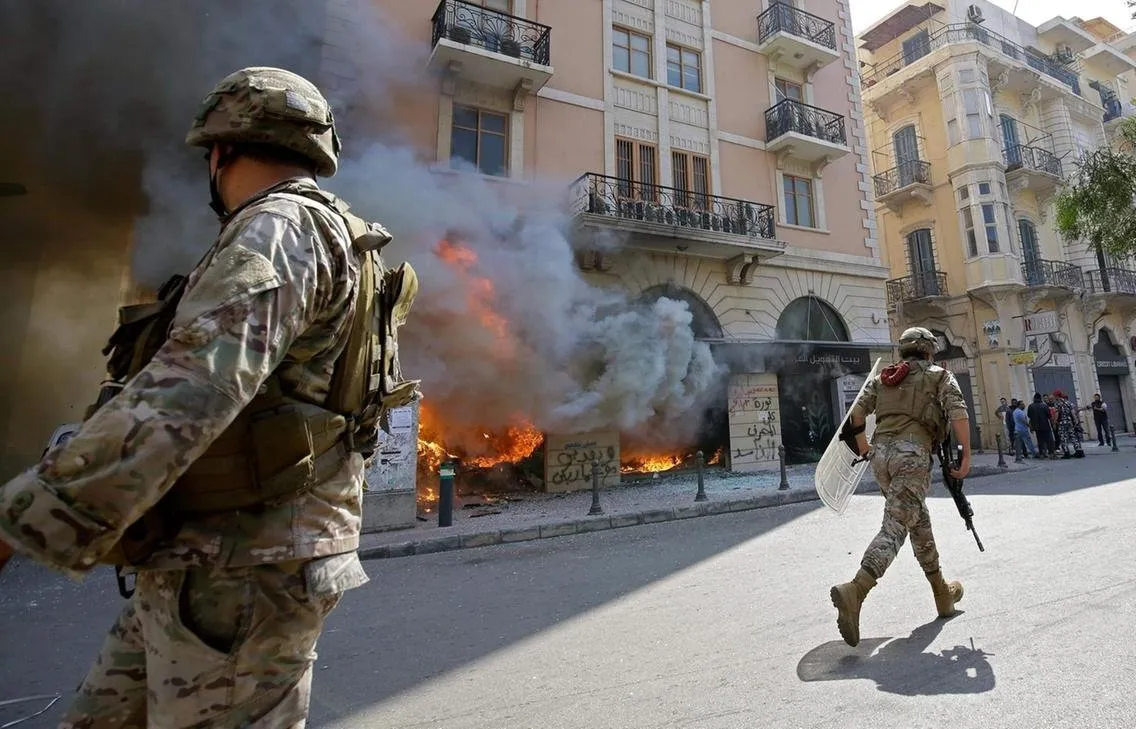
Riots have spread across Lebanon in recent weeks, in response to a currency crisis that has left large portions of the country in poverty. Headquarter locations for the country’s central bank have been targeted by protesters, along with smaller bank branches that symbolize the economic woes of the nation. Lebanon’s currency has been deteriorating for many years, but began a freefall back in October which has further plunged the country into poverty.
In the past 6 months, the nation’s Lira currency has lost about 70% of its value. Last week, Joyce Karam of United Arab Emirates-based media outlet TheNational reported that the Lebanese pound is trading for more than 5,000 per $1. The crash of the currency has led to further economic inequality in the country. According to data collected between 2005 and 2014, Lebanon’s top 1% receives 25% of the national income on average, and the top 10% receives 55% of the national income. In Tripoli, Lebanon’s second-largest city, poverty rates were around 50% near the end of last year, and this figure has continued to rise as the crisis deepens.
According to the Anadolu Agency, protesters briefly occupied the central bank headquarters in the capital city of Beirut last week before being forced from the area by riot police. The bank was reportedly burned in the process, along with nearby shops. Protesters also set fires in front of the palace in Beirut. The protests reportedly came in the wake of massive bank runs, in which citizens lined up around the block hoping to access their funds.
Al Arabiya English✔@AlArabiya_Eng
Video: Live footage shows clashes between Lebanese armed forces and demonstrators in #Tripoli after protests erupted in the city and other areas in #Lebanon over the dire economic conditions in the county.https://english.alarabiya.net/en/features/2020/04/28/Tripoli-protests-slide-to-further-violence-banks-targeted-in-Lebanon-s-north.html …
156:09 PM - Apr 28, 2020Twitter Ads info and privacy
15 people are talking about this
Foreign Policy reported that similar protests occurred in Tripoli, with protesters breaking windows and setting fire to multiple banks.
“Across the country, branches of Lebanon’s central bank have been pelted with rocks and set on fire. More and more banks in Beirut are reinforcing their facades with sheets of metal to protect them from the smashing and burning. Each morning frustrated customers linger outside in face masks waiting to get in and try to negotiate to get their money out,” Foreign Policy reported.
Activists have said that they are demanding a new transitional government and will not stop protesting until those are currently in power resign.
Lebanon’s prime minister, Hassan Diab, condemned the recent protests and called them a “coup” against the government and an attempt to manipulate the value of the Lebanese currency.
On Monday, the Lebanese army announced that it arrested dozens of people during the protests for various crimes, mostly vandalism, and looting.
Al Arabiya English✔@AlArabiya_Eng
Watch: Protests in #Lebanon’s Tripoli kick off again, and banks are largely the target amid a failing economy, rising unemployment, and poverty.https://english.alarabiya.net/en/News/middle-east/2020/04/28/Protesters-set-banks-on-fire-in-Lebanon-s-Tripoli.html …
2110:32 AM - Apr 28, 2020Twitter Ads info and privacy
22 people are talking about this
“The total number of arrests made by military intelligence between 11 and 15 June in different Lebanese regions is 36 people for acts of vandalism,” a statement from the army read.
In an attempt to slow down the crash and quell the protests, the Lebanese central bank announced that it would inject millions of dollars into the market. The cash injections are having a small impact on the market, but overall, it hasn’t done much to restore public faith in the economy. The country has also reached out to the International Monetary Fund (IMF) to request large loans, but critics worry that such a move would just plunge the country into further debt.
